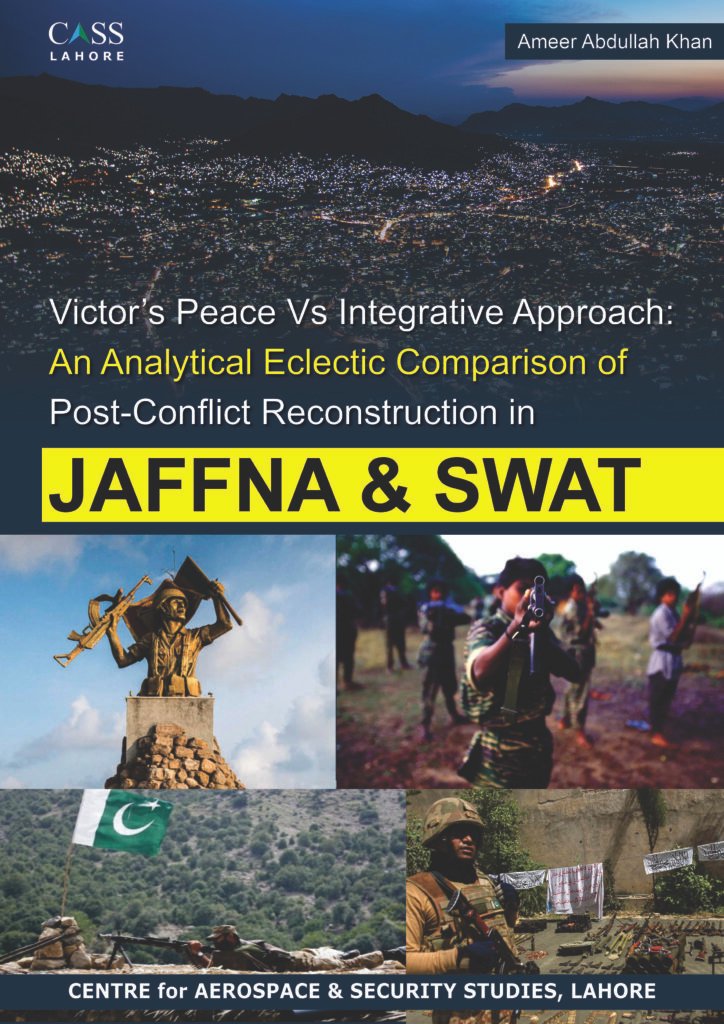VICTOR’S PEACE VS INTEGRATIVE APPROACH: AN ANALYTICAL ECLECTIC COMPARISON OF POST-CONFLICT RECONSTRUCTION IN JAFFNA AND SWAT

ABSTRACT
Why do some post-conflict regions recover more effectively than others? Driven by this question, this study compares post-conflict reconstruction (PCR) efforts in Swat, Pakistan, and Jaffna, Sri Lanka. It examines how varying political, military, and social strategies influence long-term peace. The study compares Swat’s reintegrative model with Jaffna’s victor’s peace approach and hypothesises that successful PCR requires a balanced integration of security, governance, economic revitalisation, and reconciliation. It addresses three key questions: How do Jaffna and Swat compare in their reconstruction trajectories? What factors influenced their respective outcomes? What lessons can be drawn for future PCR contexts? Employing a comparative case study methodology guided by analytic eclecticism, the research draws on interviews, policy reports, and secondary literature, integrating insights from neorealism, neoliberalism, and constructivism. The findings indicate that Swat’s inclusive governance reforms, DDR programmes, and community-based economic recovery efforts created a participatory peace. In contrast, Jaffna’s post-war militarisation, centralised control, and absence of reconciliation mechanisms exacerbated ethnic exclusion.

Paper Available on Request
CASS LAhore

The Centre for Aerospace & Security Studies (CASS) was established in July 2021 to inform policymakers and the public about issues related to aerospace and security from an independent, non-partisan and future-centric analytical lens.


